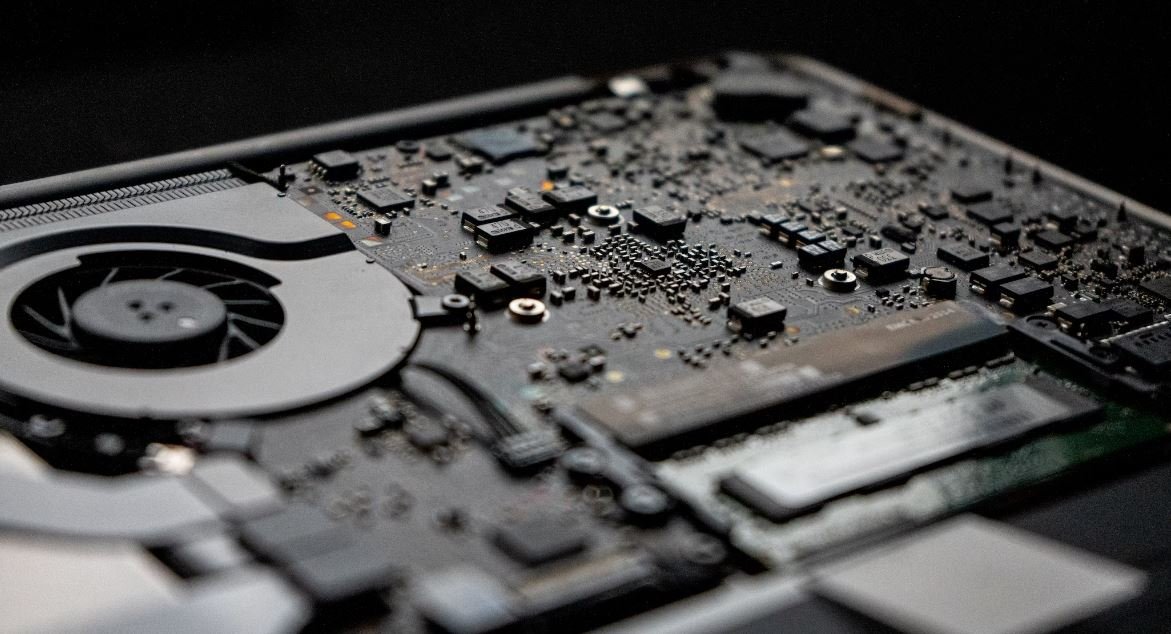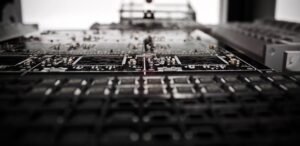What Artificial Intelligence Is Not
Artificial Intelligence (AI) is a widely discussed topic in today’s world, but there are often misconceptions about what AI truly is. It is important to understand what AI is not in order to have a clearer understanding of its capabilities and limitations.
Key Takeaways:
- AI is not sentient or conscious.
- AI is not capable of having emotions.
- AI is not infallible and can make errors.
Contrary to popular belief, **AI is not sentient or conscious**. While AI systems can simulate human-like intelligence and behavior, they lack true consciousness and self-awareness. AI algorithms are designed to process and analyze data, make predictions, and perform tasks, but they do not possess thoughts or consciousness.
It is also important to note that **AI is not capable of having emotions**. While certain AI systems can analyze emotions in human speech or facial expressions, they do not experience emotions themselves. AI’s ability to recognize and respond to emotions is solely based on its programming and algorithms.
**AI is not infallible and can make errors**. Despite advancements in AI technology, it is still prone to mistakes and errors. AI algorithms rely on the quality and quantity of data they are trained on, and if the data is biased or incomplete, the AI system may produce inaccurate results. Continuous improvement and human oversight are crucial to ensure the reliability of AI.
Understanding the Limitations of AI
While AI has made significant progress, it is essential to acknowledge its limitations. **AI cannot replace human intuition and creativity**. Although AI systems can analyze vast amounts of data and generate insights, they lack the ability to think creatively or come up with original ideas.
Additionally, **AI cannot fully understand context and nuance**. While AI algorithms can process text and language, they often struggle to comprehend the subtle meanings and context behind human communication. This limitation restricts the ability of AI systems to interpret complex human interactions accurately.
Furthermore, **AI cannot replicate human empathy**. While AI can analyze and interpret emotions, it lacks genuine empathy, understanding, and compassion. Empathy requires a deep understanding of human experiences and emotions, something that AI algorithms currently do not possess.
Data Privacy and Ethical Considerations
AI technology relies heavily on data, and this raises concerns regarding privacy and ethics. **AI must respect privacy and maintain data security**. As AI systems collect and process vast amounts of personal and sensitive data, it is crucial to establish robust safeguards to protect individuals’ privacy rights.
Furthermore, **AI must adhere to ethical guidelines and principles**. The decisions made by AI algorithms can have significant implications, such as in healthcare or criminal justice systems. Ensuring transparency, accountability, and fairness should be a priority in the development and deployment of AI systems.
Interesting Data Points
| Fact | Data Point |
|---|---|
| Number of AI-powered devices | By 2025, it is estimated that there will be over 55 billion AI-powered devices worldwide. |
| Global AI market size | The global AI market is projected to reach $190 billion by 2025. |
Conclusion
By understanding what AI is not, we can appreciate its true potential while ensuring responsible development and use. AI is not sentient or conscious, lacks emotions, and can make errors. It cannot replace human creativity, empathy, or intuition. Acknowledging these limitations and addressing ethical considerations are essential for harnessing the power of AI in a beneficial and responsible manner.

Common Misconceptions
AI is Not Human-Like
One common misconception about artificial intelligence is that it is capable of human-like thinking and emotions. In reality, AI systems are designed to perform specific tasks and do not possess consciousness or self-awareness.
- AI does not have personal beliefs or opinions.
- AI does not experience emotions such as joy or sadness.
- AI does not have a sense of self or personal identity.
AI is Not Infallible
Another misconception is that AI is infallible and always accurate. While AI can make impressive predictions and analyze large amounts of data, it is not immune to errors or biases.
- AI can make mistakes, especially in complex and uncertain situations.
- AI can be biased based on the data it is trained on.
- AI may require regular updates and maintenance to ensure accuracy.
AI is Not a Replacement for Humans
Some people mistakenly believe that AI will replace human workers entirely. However, AI is intended to augment human capabilities rather than replace them.
- AI can automate certain tasks, freeing up human workers to focus on more complex and creative tasks.
- AI still requires human oversight and intervention for critical decision-making.
- AI works best when used collaboratively with human expertise.
AI is Not All-Encompassing
There is a misconception that AI can solve all problems and provide highly accurate predictions in any scenario. In reality, the effectiveness of AI systems highly depends on the quality and quantity of the data they have been trained on.
- AI systems may struggle in unfamiliar or novel situations.
- AI may produce inaccurate results if the data it was trained on is incomplete or biased.
- AI performs best within a well-defined scope and may not be effective in all domains.
AI is Not a Threat to Humanity
There is a common misconception that AI will eventually surpass human intelligence and pose a threat to humanity. However, AI development prioritizes ethical guidelines to ensure that AI systems serve mankind’s best interests.
- AI development focuses on enhancing human lives rather than replacing or endangering them.
- AI researchers stress the importance of responsible AI development and addressing any potential risks.
- AI systems are built with safety measures and safeguards to prevent unforeseen consequences.

Artificial Intelligence vs. Human Intelligence
Despite its immense capabilities, artificial intelligence (AI) cannot replicate the full range of human intelligence. This table illustrates some key differences between AI and human intelligence.
| Aspect | Artificial Intelligence | Human Intelligence |
|---|---|---|
| Learning | AI learns from data and algorithms. | Humans learn through experience, education, and intuition. |
| Emotions | AI lacks emotions and emotional understanding. | Humans experience and understand emotions. |
| Common Sense | AI lacks common sense and may struggle with practical reasoning. | Humans possess common sense and apply it to various situations. |
| Creativity | AI can imitate creativity but lacks genuine creative spark. | Humans possess unique creative abilities and imagination. |
| Physical Presence | AI exists as virtual entities and lacks physical presence. | Humans have physical bodies and interact with the world. |
AI: Transforming Industries
The integration of artificial intelligence has had a significant impact on various industries, revolutionizing the way we work and live. The following table highlights some industries benefiting from AI:
| Industry | AI Applications |
|---|---|
| Healthcare | AI aids in disease diagnosis and treatment planning. |
| Finance | AI automates financial transactions and fraud detection. |
| Transportation | AI powers self-driving cars and improves traffic management. |
| Retail | AI enhances personalized shopping experiences and inventory management. |
| Education | AI supports personalized learning and adaptive tutoring. |
AI and Job Market
While AI brings about advancements and efficiency, concerns arise regarding its impact on the job market. The table below compares the effects of AI on different employment sectors:
| Employment Sector | AI Impact |
|---|---|
| Manufacturing | AI may automate repetitive tasks, reducing manual labor demand. |
| Customer Service | AI chatbots handle customer inquiries, potentially reducing human workforce. |
| Professional Services | AI streamlines data analysis and information processing. |
| Healthcare | AI assists physicians in diagnosis and treatment decisions. |
| Creative Industries | AI complements artistic talent and aids in content creation. |
AI Limitations in Decision Making
While AI demonstrates exceptional capabilities, it still faces limitations when it comes to decision making. The table below sheds light on some challenges AI encounters:
| Challenge | Explanation |
|---|---|
| Explainability | AI models can make accurate decisions, but often lack explanations behind them. |
| Context Awareness | AI may struggle to understand complex contextual information. |
| Ethical Considerations | AI decisions can be unbiased, but also reflect the biases in the data provided. |
| Uncertainty Handling | AI may not handle uncertain situations or ambiguous input as effectively as humans. |
| Morality and Judgment | AI lacks the moral compass and ethical judgment that humans possess. |
AI in Science Fiction
Artificial intelligence has been a recurring theme in science fiction literature and films, often portrayed in various forms. The table below showcases notable AI portrayals:
| Media | AI Character |
|---|---|
| 2001: A Space Odyssey | HAL 9000 |
| The Matrix | Agent Smith |
| Blade Runner | Roy Batty |
| Ex Machina | Ava |
| Terminator | Skynet |
Perception and Recognition
AI’s ability to interpret and recognize objects and patterns plays a crucial role in its functionality. The following table provides an insight into AI’s perception capabilities:
| Perception Type | AI Application |
|---|---|
| Image Recognition | AI identifies objects, people, or scenes in images with high accuracy. |
| Speech Recognition | AI transcribes spoken words and enables voice-controlled systems. |
| Natural Language Processing | AI comprehends and responds to human language, enabling chatbots and virtual assistants. |
| Facial Recognition | AI analyzes facial features for identification and authentication purposes. |
| Gestural Recognition | AI interprets human gestures and motions for interaction and control. |
Data Privacy Concerns
The rapid growth of AI systems raises concerns about data privacy and security. The table below highlights potential data privacy issues:
| Concern | Description |
|---|---|
| Data Breach | AI systems may be vulnerable to security breaches, exposing sensitive information. |
| Biometric Data Collection | AI may utilize facial recognition or other biometric data, raising privacy concerns. |
| Surveillance | AI-powered surveillance systems may infringe on personal privacy rights. |
| Data Monopolization | AI companies could acquire vast amounts of personal data, leading to monopolistic power. |
| Algorithmic Bias | AI algorithms might amplify existing biases in data, leading to discriminatory outcomes. |
Future of Artificial Intelligence
As AI continues to evolve, its potential applications seem limitless. However, various challenges and ethical considerations must be addressed. The development of AI should prioritize responsible and inclusive design, ensuring a beneficial and equitable future for humanity.
Frequently Asked Questions
What Artificial Intelligence Is Not
What is the definition of artificial intelligence?
Artificial Intelligence (AI) refers to the development of computer systems that can perform tasks that would typically require human intelligence. These tasks may include speech recognition, problem-solving, and decision-making, among others.
Does artificial intelligence possess consciousness?
No, artificial intelligence does not possess consciousness. AI systems are designed to mimic human intelligence in performing specific tasks, but they lack self-awareness, emotions, and subjective experiences associated with consciousness.
Is artificial intelligence capable of feelings and emotions?
No, artificial intelligence is not capable of feeling emotions. While AI can be programmed to recognize and respond to human emotions, it does not experience emotions itself as it lacks the underlying biological and physiological components necessary for emotional experiences.
Can artificial intelligence replace human creativity?
Artificial intelligence can assist in enhancing human creativity but cannot fully replace it. AI can generate creative outputs based on patterns and algorithms, but the spontaneous and original thinking associated with human creativity still remains unique to humans.
Can artificial intelligence possess moral values and ethics?
No, artificial intelligence does not possess moral values and ethics on its own. AI systems can be programmed to follow ethical guidelines, but their understanding of morality is based on the principles set by human developers and cannot act autonomously in making moral judgments.
Is artificial intelligence infallible and error-free?
No, artificial intelligence is not infallible and can make errors. AI systems are susceptible to biases, limitations in algorithms, and uncertainties in data. Continuous testing, validation, and improvement processes are necessary to minimize errors and improve AI performance.
Can artificial intelligence fully replace human labor?
While artificial intelligence has the potential to automate certain tasks and increase efficiency, it is unlikely to fully replace human labor. AI and human collaboration can often lead to better outcomes as humans possess unique capabilities such as empathy, adaptability, and complex problem-solving skills.
Does artificial intelligence pose any risks to society?
Artificial intelligence can present risks if not properly implemented or regulated. Concerns include the potential for job displacement, privacy and security issues, biases within AI algorithms, and the ethical implications of AI decisions. Responsible development and governance are crucial to mitigate these risks.
Is artificial intelligence synonymous with robots?
No, artificial intelligence is not synonymous with robots. AI refers to the intelligence exhibited by machines, while robots are physical entities that can be powered by AI technologies. AI can exist without robots, and vice versa.
Can artificial intelligence become superior to human intelligence?
While AI can excel in specific tasks and have superior computational abilities, it is unlikely to surpass human intelligence in all domains. Human intelligence encompasses a wide range of skills, including creativity, intuition, emotional understanding, and social interactions, which are not easily replicable by AI systems.




